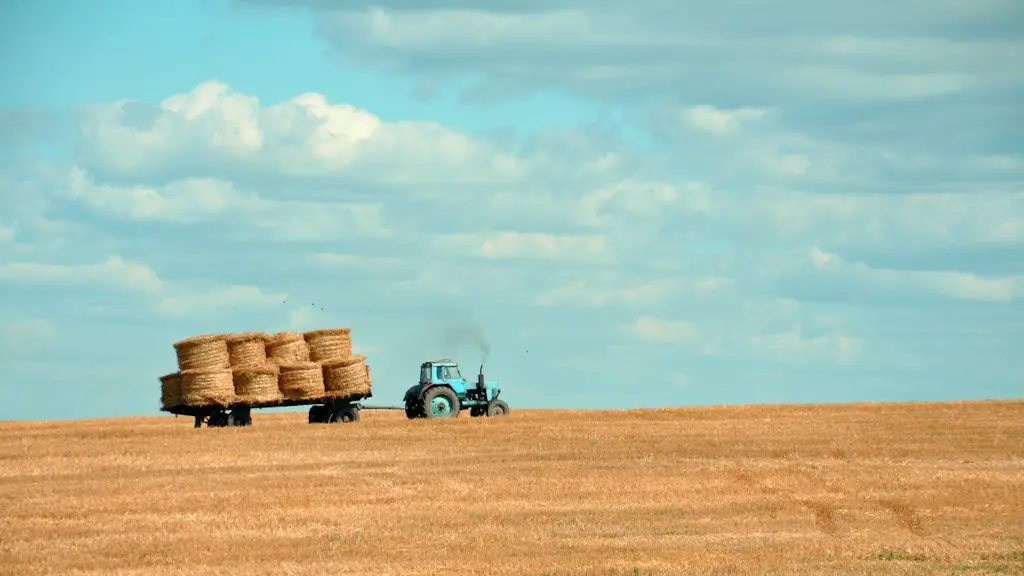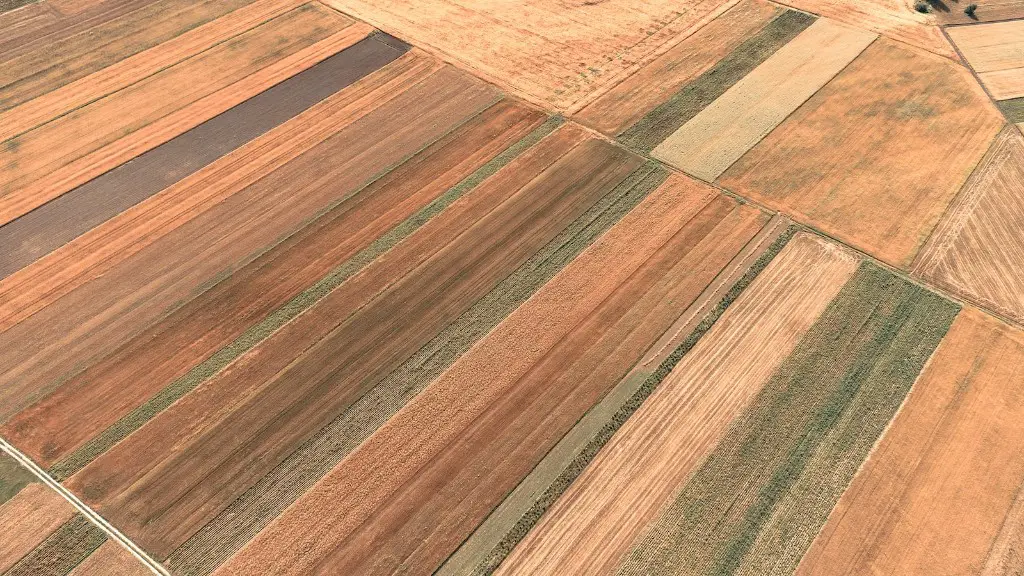Precision agriculture (PA) is a new and developing field in agriculture. It involves the use of modern, advanced technologies such as sensors, robotics, and geographic information systems (GIS) in order to better assess and manage agricultural production. Precision agriculture is a way of managing resources and inputs so that they are applied with precision, meaning they are tailored to the specific needs of each area of land. The goal of PA is to maximize output while minimizing input costs. This can be done by targeting and applying resources to areas that need them, rather than applying them uniformly over large areas as is usually done. As such, PA can reduce wastage and improve the cost-effectiveness of production.
A primary benefit of precision agriculture is the reduction in the amount of resources and energy used. By targeting resources to specific areas, farms can achieve higher yields with less water, fertilizer, and other input costs. The ability to monitor and manage acreage on a granular basis can also help farmers save money, by reducing the guesswork associated with irrigation, fertilization, and other key operations.
Another advantage of precision agriculture is the use of high-tech tools to monitor and gather data concerning soil and crop conditions. This data can be used to fine-tune management techniques, as well as detect and address potential issues early on. Furthermore, GIS systems can be used to map out and visualize fields, crops, and land use, which provides valuable insights on better land use practices.
For farmers, precision agriculture can be a helpful tool in making more accurate production decisions. By gathering live data, farmers can more accurately estimate crop yield, estimate harvest dates, and plan for storage and processing. PA can also provide useful insights on areas of the farm that may be suffering from a nutrient deficiency, as well as areas that need extra attention.
Finally, precision agriculture can also help farmers save time and labor. Automation systems can automate tedious tasks such as watering, seeding, and harvesting, while GIS-based services can reduce the time and manpower needed to monitor and manage field operations. As such, PA can result in improved efficiency and productivity.
Benefits of Precision Agriculture
In addition to the cost savings and increased efficiency that precision agriculture provides, there are a number of other benefits. By utilizing advanced technologies, farmers can collect and analyze real-time field data to better understand how their land is performing, identify any weak spots or issues, and optimize their production. Furthermore, precision farming can also help reduce the risk of over- or under-applying inputs, thereby preventing soil and water contamination. Precision agriculture can also help protect crops from pests and diseases, by enabling farmers to more accurately monitor for possible threats and apply treatments as necessary.
Precision agriculture can also be used to increase profitability by accurately identifying areas of the farm where yields can be increased. With the right data, farmers can look for opportunities to increase yields by making informed decisions about the particular crops they should grow, the timing of input applications, and the amount of resources they are using. Finally, precision farming can also open up opportunities for farmers to get into specialty-crop production, and even organic production.
Disadvantages of Precision Agriculture
Despite the numerous benefits it has to offer, precision agriculture also has a few disadvantages. For example, the cost of purchasing or renting the necessary equipment and setting up a system can be quite expensive. Additionally, despite the promise of real-time data and the accuracy of predictions, precision agriculture relies largely on accurate data and consistent maintenance for full utilization of the benefits. Finally, it may also be difficult for some farmers to adopt PA operations given the challenges associated with acquiring and learning new technologies.
Precision Agriculture in the Future
The future of precision agriculture is highly promising. As technology continues to evolve, farmers will have access to an increasingly diverse range of tools and resources to help them with their operations. As such, precision agriculture will continue to become more popular and widespread, particularly as more countries and organizations look to reduce their adverse environmental impact.
Additionally, machine learning and AI will likely play a major role in precision farming in the future. AI technology, combined with predictive analytics and real-time data, can help farmers better predict and understand problems in their operation, as well as make decisions more quickly and accurately. This will enable them to not only improve their yields, but also reduce the risk of over- or under-applying resources.
Challenges of Implementing Precision Agriculture
Though precision agriculture can offer numerous benefits, there are some challenges that must be faced when implementing this type of system. For example, some farmers may lack the resources and experience necessary to effectively design and build a precision farming system. Additionally, farmers may find themselves struggling to keep up with the cost and complexity of the technology and data associated with PA. Furthermore, there may also be a need for significant changes in how crops are managed, which could be a challenge for some farmers to adapt to.
Conclusion
Despite the challenges posed by precision agriculture, the potential benefits it can provide are quite promising. By utilizing the power of modern technologies, farmers can gain the insights they need to optimize their production, reduce resource waste, and improve the sustainability of their operations. What’s more, precision agriculture can also be a valuable tool in increasing yields, reducing input costs, and improving profits. As such, precision agriculture is well worth considering for any serious farmer.



